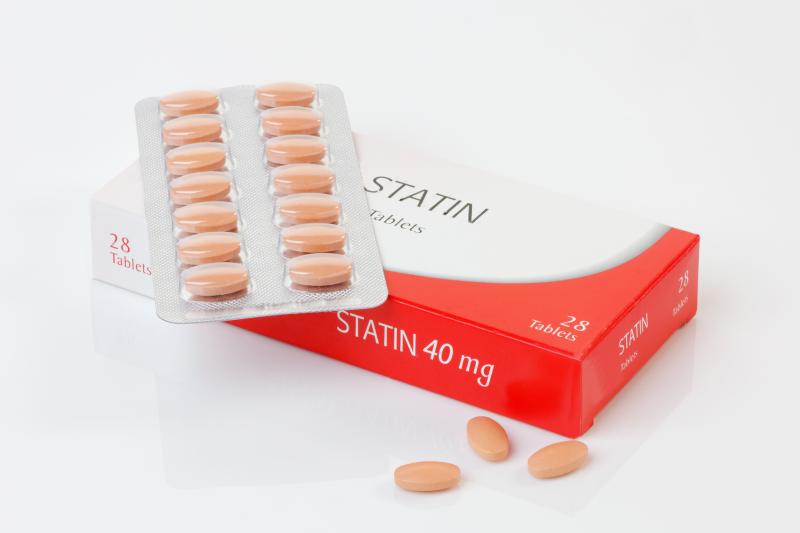Should patients with COVID-19 discontinue statin therapy?




 Other experts stand firm that effectiveness of statins is well proven
Other experts stand firm that effectiveness of statins is well provenTreatment with statins among individuals with type 2 diabetes, cardiovascular disease (CVD), or hypertension who are also positive for the novel coronavirus disease (COVID-19) must not be stopped unless there are specific contraindications, according to a study.
“We suggest that people with COVID-19, who are already on a statin for an underlying comorbid condition, should continue on it because cardiovascular complications, including myocarditis, myocardial infarction and venous thromboembolic events, are common in people with COVID-19,” the researchers said. “Statins should be discontinued if there is myositis and/or liver dysfunction, and their dose must be appropriately reduced when drugs that inhibit cytochrome P-450 system are in use.”
PubMed database was searched using specific keywords until 12 June 2020. Eligible articles published in English were retrieved and reviewed.
Results of the mini-review showed that statins possess immunomodulatory, anti-inflammatory, antithrombotic, and antioxidant properties which can potentially reduce the severity of lung injury, as well as mortality, in severe acute respiratory syndrome-coronavirus 2 (SARS-CoV-2) infections. [Diabetes Metab Syndr 2020;14:1225-1229]
In addition, statin-induced upregulation of angiotensin-converting enzyme-2 (ACE2) could alleviate lung injury due to excess angiotensin II. Statins could also reduce the entry of the virus into cells by disrupting lipid rafts.
However, the benefit-risk ratio of the complex interaction of statins with MYD88 gene expression on outcomes in patients with COVID-19, as well as the putative role of low serum low-density lipoprotein cholesterol in increasing the severity of SARS-CoV-2 infection, warranted further explanation.
“[T]he fact that statins are known TLR-MyD88 pathway antagonists has led some to speculate that use of statins might interfere with innate immune response and worsen SARS-CoV-2 infection,” the researchers said. “However, the effect of statins on MYD88 gene expression, its role in innate and adaptive immunity, and the effect of such interactions on the severity of viral infection is complex, [and] the response might differ depending upon the infecting virus.”
Two major, albeit rare, adverse effects of statin therapy were muscle symptoms and liver dysfunction, with the former normally occurring within 1 month of treatment initiation. Myalgia has been reported in 2–7 percent of persons on statins. [Pharmacol Rep 2011;63:859-866]
Furthermore, a recent study reported skeletal muscle involvement with elevated serum creatine phosphokinase in 19.3 percent of patients with severe COVID-19. In such cases, statin therapy should be discontinued, according to the researchers. [JAMA Neurol 2020;77:683-690]
This finding was echoed by Dean G. Karalis from the Division of Cardiology at Thomas Jefferson University in Philadelphia, US, stating that patients with COVID-19 who are on statins may develop side effects, including muscle-related symptoms. However, he stressed the safety of statin therapy and its beneficial effects on cardiovascular disease (CVD) outcomes in those with SARS-CoV-2 infection. [https://www.lipidjournal.com/article/S1933-2874(20)30209-9/pdf]
“In the era of COVID-19, statins should continue to be prescribed when indicated by current guidelines,” Karalis said. “Because patients with underlying CVD are at increased risk of serious complications and death from COVID-19, reducing the burden of CVD in our patients should improve outcomes in those who become infected with COVID-19.”